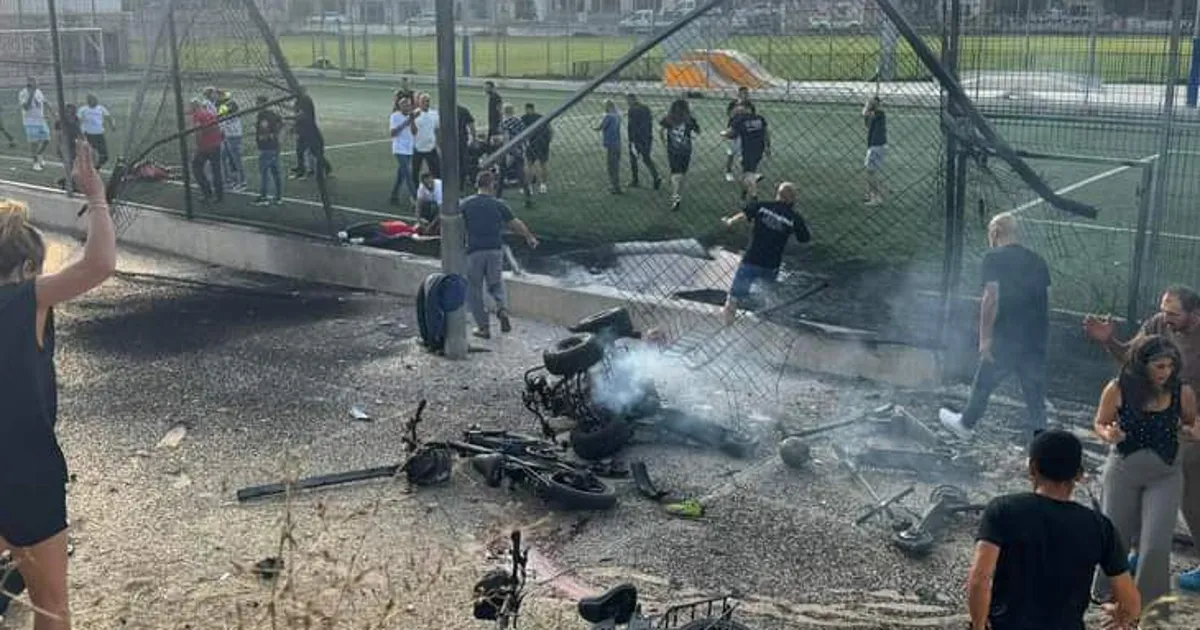On July 27, a deadly rocket attack on the Israeli-controlled Golan Heights resulted in the tragic deaths of 12 children and teenagers. The attack, which struck a soccer field in the town of Majdal Shams, left 13 others wounded, causing widespread shock and grief in the region. Israel swiftly identified Hezbollah, the Lebanon-based militant group, as responsible for the rocket strike, despite Hezbollah's denial of involvement.
 Credit: AI Monitor - Hezbollah Commander Faud Shukr
Credit: AI Monitor - Hezbollah Commander Faud Shukr
In response to the attack, Israel conducted a targeted airstrike in Beirut, Lebanon, on July 30, aiming at Fuad Shukr, a senior Hezbollah commander. Shukr, who has been confirmed killed, was a key figure within Hezbollah, serving as a senior advisor on military affairs to Hezbollah leader Hassan Nasrallah. The Israeli military stated that Shukr was the mastermind behind the rocket attack and had a long history of involvement in militant activities, including the 1983 bombing of the U.S. Marine Corps barracks in Beirut, which killed 241 U.S. military personnel.
 Credit: The Independent - Beirut Airstrike Damage
Credit: The Independent - Beirut Airstrike Damage
The airstrike in Beirut led to a large explosion that partially collapsed an apartment building in the southern suburbs of the Lebanese capital. The Lebanese authorities quickly cordoned off the area, and emergency services were deployed to assist the injured and search for survivors.
Israeli Defense Minister Yoav Gallant emphasized that Hezbollah had "crossed the red line" with their actions, necessitating a decisive response. He reiterated that Israel's aim was not to escalate the situation into an all-out war, but that the country was fully prepared for any further confrontations. The Israeli government had made it clear that the strike was a direct retaliation for the Majdal Shams attack and part of its broader strategy to counter threats from Hezbollah.
The international community, particularly the United States, has expressed a balance of support and caution. Washington officials have affirmed Israel's right to defend itself against terrorist threats like Hezbollah, but emphasize the necessity of pursuing diplomatic solutions to end the violence.
 Credit: Foreign Policy - Israeli Iron Dome Missile Defense System
Credit: Foreign Policy - Israeli Iron Dome Missile Defense System
The ongoing conflict between Israel and Hezbollah has seen sporadic exchanges of fire over the past 10 months, following the initial Hamas-led attack on Israel. The situation is further complicated by Iran's support for Hezbollah and its warnings against Israeli actions in Lebanon. The new Iranian president, Masoud Pezeshkian, has cautioned that any Israeli attacks on Lebanon would carry severe consequences.
As tensions continue to rise, the potential for broader conflict looms over the region. Diplomatic efforts remain crucial in preventing further escalation, but the deeply entrenched hostilities and the involvement of multiple world powers complicate the path to peace.


